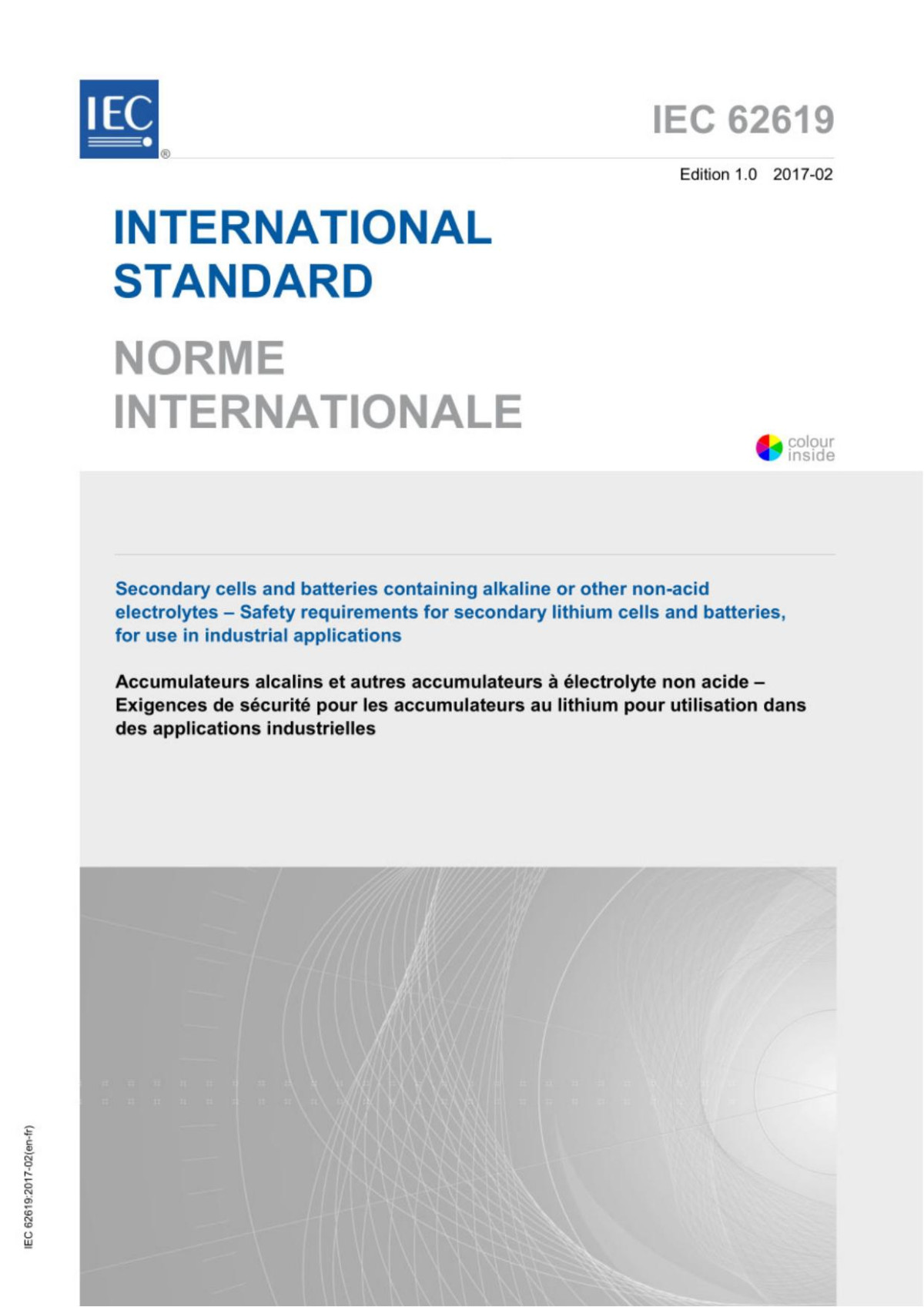

Most ebook files are in PDF format, so you can easily read them using various software such as Foxit Reader or directly on the Google Chrome browser.
Some ebook files are released by publishers in other formats such as .awz, .mobi, .epub, .fb2, etc. You may need to install specific software to read these formats on mobile/PC, such as Calibre.
Please read the tutorial at this link: https://ebookbell.com/faq
We offer FREE conversion to the popular formats you request; however, this may take some time. Therefore, right after payment, please email us, and we will try to provide the service as quickly as possible.
For some exceptional file formats or broken links (if any), please refrain from opening any disputes. Instead, email us first, and we will try to assist within a maximum of 6 hours.
EbookBell Team

4.8
104 reviews1 Scope
This document specifies requirements and tests for the safe operation of secondary lithium
cells and batteries used in industrial applications including stationary applications.
When there exists an IEC standard specifying test conditions and requirements for cells used
in special applications and which is in conflict with this document, the former takes
precedence (e.g., IEC 62660 series on road vehicles).
The following are some examples of applications that utilize cells and batteries under the
scope of this document.
• Stationary applications: telecom, uninterruptible power supplies (UPS), electrical energy
storage system, utility switching, emergency power, and similar applications.
• Motive applications: forklift truck, golf cart, auto guided vehicle (AGV), railway, and marine,
excluding road vehicles.
Since this document covers batteries for various industrial applications, it includes those
requirements, which are common and minimum to the various applications.
Electrical safety is included only as a part of the risk analysis of Clause 8. In regard to details
for addressing electrical safety, the end use application standard requirements have to be
considered.
This document applies to cells and batteries. If the battery is divided into smaller units, the
smaller unit can be tested as the representative of the battery. The manufacturer clearly
declares the tested unit. The manufacturer may add functions, which are present in the final
battery to the tested unit.